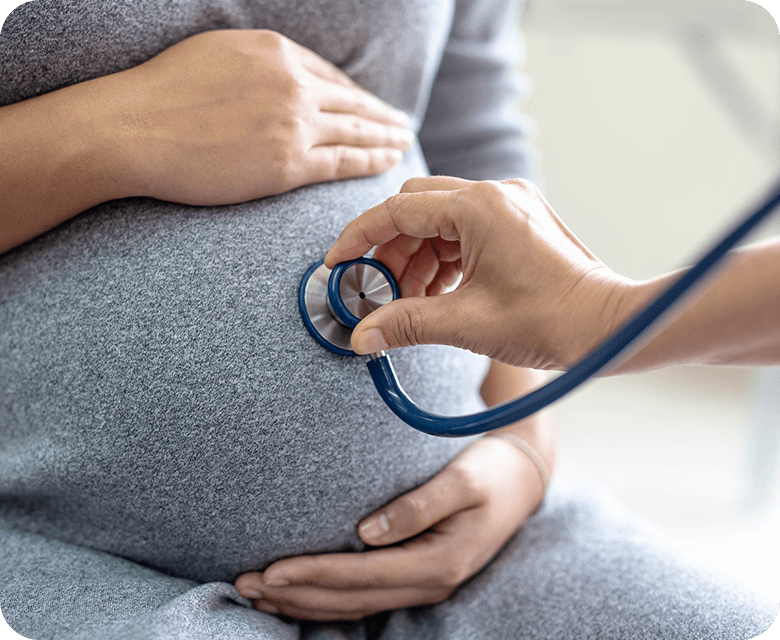What is Panadol?
Panadol is an over-the-counter pain relief medication that provides effective temporary relief from mild to moderate pain associated with many different common conditions – including headache, migraine, osteoarthritis, cold and flu symptoms, toothache, muscular aches, sore throat pain and period pain. Panadol can also help to reduce fever when you’re suffering from a high temperature.
The active ingredient in Panadol is paracetamol (acetaminophen), a common pain reliever that helps to reduce fever and ease mild to moderate pain.i, ii
If you’re an expecting mother, you may be wondering whether it is safe for you to use Panadol when pregnant. The good news is, there’s no need for you to suffer unnecessarily from everyday pains during pregnancy – and relief is available.iii
Learn more about using Panadol during pregnancy with this simple guide, including whether you can take Panadol in early pregnancy, as well as how often you can do so.

Is Panadol safe to use when pregnant?
While there is no ‘one size fits all’ answer to the question of whether you should use Panadol when pregnant (this should always be decided by your doctor), in most cases, paracetamol-based pain relievers like Panadol are considered safe to take during your pregnancy. This is because there is no clear medical evidence that paracetamol may be harmful to an unborn baby when taken at the recommended dose. i, iii, vii
In fact, paracetamol is considered to be the first-line pain medication for use during both pregnancy and breastfeeding for the treatment of mild to moderate pain and fever, and it is used by many pregnant women.iv
It’s important to note that the safety of Panadol for use during pregnancy is a key difference between paracetamol and ibuprofen, another common pain reliever. While Panadol and other paracetamol products may be used safely throughout a pregnancy in most cases, ibuprofen (an anti-inflammatory over-the-counter pain relief medication) should be avoided during the entire pregnancy and is not to be taken at all during the third trimester, unless advised by a healthcare professional.v
This is because taking ibuprofen during the third trismester of pregnancy has been associated with an increased risk of complications for an unborn baby, including heart problems and a reduced amount of amniotic fluid (the clear liquid that surrounds a foetus while inside the uterus, which is essential to healthy physical development).v, vi
Of course, while Panadol is generally considered to be a suitable pain relief option to use during most pregnancies, you should always consult your doctor or a healthcare professional before taking any form of medication, including Panadol, while pregnant – to make sure it’s right and safe for you.
When using Panadol, be sure to always follow the directions for use that are found on the product label. It is recommended that you only take Panadol for the shortest possible amount of time and in the lowest effective dose.i

Using Panadol in early pregnancy
You may be wondering whether Panadol is safe for an expecting mother to use in the early stages of pregnancy (the first 12 weeks). This is a natural concern, since many doctors may recommend that a woman avoid taking any medication during her first trimester of pregnancy.vii
The reason for this advice is that the first 12 weeks of a pregnancy is a key stage of development for an unborn baby (during which organs begin to form) and some medications may pose a health risk during these vital weeks.vii
Of course, as mentioned above, you should always consult a healthcare professional before you use any medication (including Panadol) no matter what stage of pregnancy you are in.
A pain reliever like Panadol can be particularly helpful if, like many women in the early stages of pregnancy, you are experiencing frequent headaches, since Panadol provides effective temporary relief from headache pain.viii, ix
Headaches are a common symptom during the first trimester of pregnancy, although the exact reason for this isn’t always clear. It’s possible that changing hormone levels may be to blame; however, stress, fatigue or a sudden lack of caffeine (for women who’ve had to give up their morning coffee while pregnant) are also all potential causes of headaches in early pregnancy.ix
Whatever the reason for your headache, or any other form of mild to moderate pain you might experience while pregnant, Panadol can help to give you some relief.i, ii Again, always be sure to speak with your doctor about taking medication during pregnancy before you use Panadol.
How often can you take Panadol when pregnant?
Your doctor is the best person to advise you on how often you should take Panadol when pregnant (if at all), and on what may be the right dosage for you.
In most cases, it is still recommended that you only take Panadol for the shortest possible amount of time and in the lowest effective dose.i
For adults, the usual recommended dose of paracetamol is 500 to 1,000mg every four to six hours, with a maximum of 4,000mg in any 24 hour period.ii
Always follow the dosage instructions on the product label when using any form of medication. If your pain continues despite treatment with Panadol, seek further medical advice before increasing the amount or frequency of your dosage.
Discover the full range of Panadol pain relief products today.











